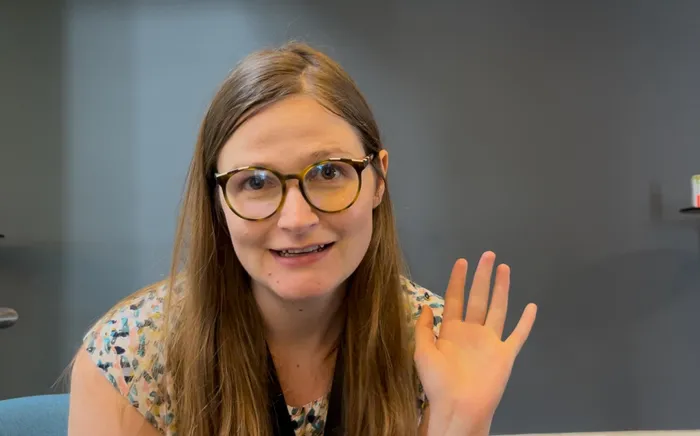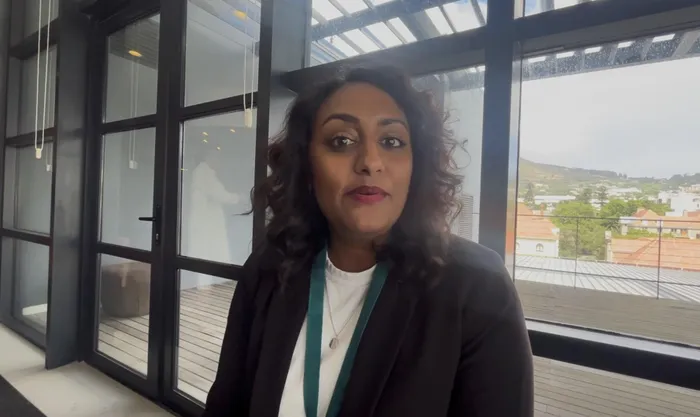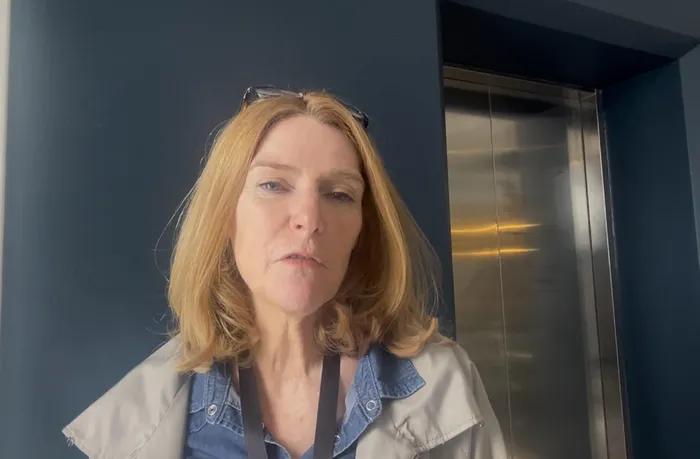Building a sustainable future: The role of communities in the e-waste circular economy

Aysha Lotter, law and policy strategist, speaking at the E-waste Recycling Authority’s (ERA's) roundtable.
Image: Fouzia Van Der Fort
Local communities are key in driving the circular economy, minimising waste, and sustainable change to maintain a healthy environment, says Aysha Lotter, law and policy strategist.
She spoke at the E-waste Recycling Authority’s (ERA) roundtable discussion at the Iziko South African Museum in Cape Town on Tuesday, October 14.
Ms Lotter said that the government and corporates would only come in to assist them in actioning solutions to their problems - in terms of the disposal, sorting, and collection of waste.
The discussion formed part of the authority’s annual seven-day eco-activism campaign, from Friday, October 10, until Friday, October 17.
It also coincided with International E-waste Day, observed annually on October 14 to raise awareness about the growing problem of discarded electrical and electronic equipment.
Ms Lotter said that solutions would come from the community, and that collectively the state and the community would hold producer responsibility organisations (PROs) accountable to meet their extended producer responsibility (EPR) obligations, which are legal requirements to manage the end-of-life of their products.
“When looking at the health of the environment, it's the people that have the connection to the church and the connection to the community organisations,” she said.
Ms Lotter explained that when it came to the circular economy, it was about humans reconnecting with nature.
“We want to make sure that whatever we make can be reabsorbed by our planet. A lot of our stuff is disconnected from reality. You can’t put your cellphone in the ground and then your tree will sprout,” she said.
She said that while electronics were so far removed from nature and its natural processes, it was important for people to know that everything that is mined is put into electronics.
“Our gold, our silver, and platinum end up in our batteries in our circuit boards. That cycle needs to close. We need to get the electronics back so we can reuse that gold because at this point our gold is coming from the earth and that mine site is poisoning the environment that it is in,” said Ms Lotter.
She also explained that there was money and that the communities needed to be supported.
There needs to be a connection with producers, consumers, and PROs to ensure that all of the money is flowing to the right places.
“Circularity, reduce, reuse, recycle, all of these things mean the same thing: how do we reconnect with nature? That we are not harming but rather feeding and supporting existing life cycles or life-affirming systems,” said Ms Lotter.

Levanya Reddy, E-waste Recycling Authority’s (ERA's) general manager, said they discussed the past five-years of EPR implementation and what would be done in the future.
Image: Fouzia Van Der Fort
ERA general manager Levanya Reddy said they discussed the past five years of EPR implementation and where they would be in the future.
“We are talking about how we are going to make a difference with e-waste collection and encourage members of the public to visit our website.
“Look for your nearest drop-off point. Bring in as much e-waste as possible.
“We hope that we are able to divert as much e-waste from our landfills as possible,” she said.

Social entrepreneur Tracey Gilmore, and founder of Taking Care of Business, a non-profit company.
Image: Fouzia van der Fort
Social entrepreneur Tracey Gilmore, and founder of Taking Care of Business, said that they upskill people to repair electronic devices. Some of their graduates with the capacity to fix appliances from a kettle to a fridge or washing machine have either gone on to work for a boss or have become entrepreneurs.
Ms Gilmore said they have good relationships with retailers who give them appliances, which customers have returned, for their participants to fix and sell or make it reusable.
"We equip unemployed and aspiring entrepreneurs with the skills and resources they need to unlock their full potential and access the circular economy," she said.